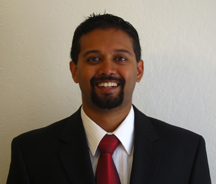Imran Haque, Director of Research at Counsyl
Abstract:
Semiconductors grew fast; DNA technology is growing faster. Over the last four years, Counsyl has grown from a tiny dorm room into one of the largest clinical genome centers in the world. Along the way, we’ve learned that many of the challenges in translating genomic technology to the clinic belong to computer science, but extend beyond traditional bioinformatics. In this talk, I will argue that the clinical application of genomic technology presents some of the most interesting outstanding problems all across computer science.
Why? Data beats algorithms. Now, we have plenty of data of a new kind: clinical genomic data. In the past, web, email, map, and social data stimulated new thinking around new kinds of problems, from PageRank to spam filtering. Genomics is no different. What does it mean to search a database of 100,000 clinical genomes? To sort it? To visualize it? We’re just beginning to ask those questions, and need to draw on areas ranging from distributed computing to machine learning to answer them.
Bio:
Imran S. Haque is the Director of Research at Counsyl, a South San Francisco-based genomics company performing carrier testing on over 2.5% of all births in the United States. Prior to his time at Counsyl, Dr. Haque received his Ph.D. in computer science at Stanford, where he worked on scalable machine learning for drug discovery with Vijay Pande and Daphne Koller, and his BS in electrical engineering and computer science at UC Berkeley.

